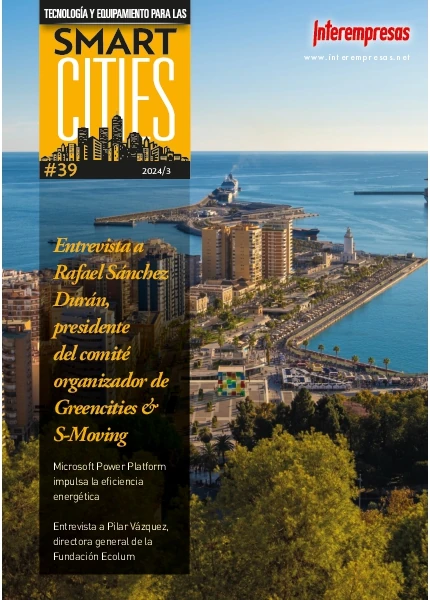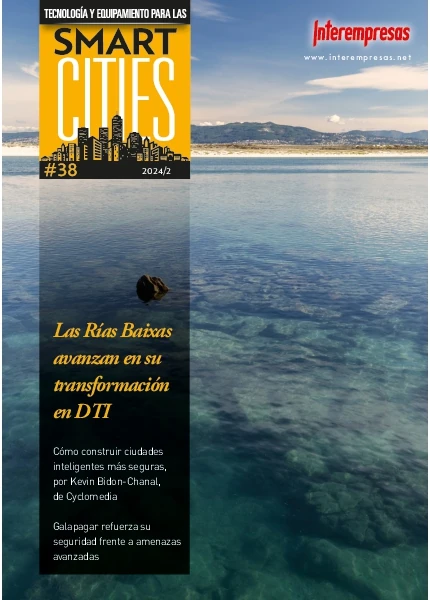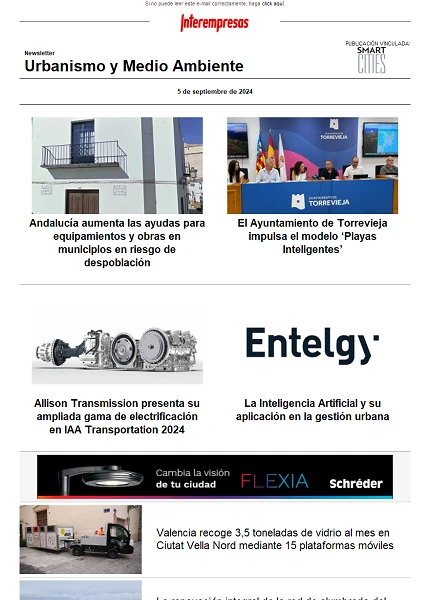Interview with Felix morale, President of AEPJP
May 4, 2011
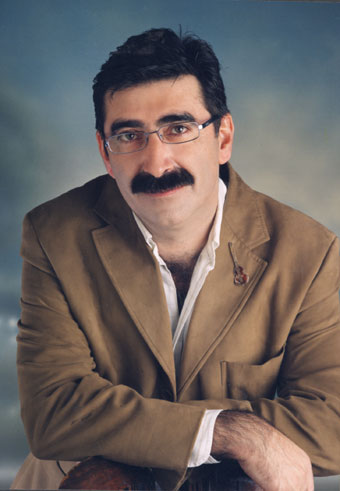
Among the conclusions presented in the last Congress of Las Palmas de Gran Canaria were shown how economic, climatic and human factors reversed on the different phases of the public garden. Which one does today greater weight?
Obviously all three are conditioning factors in the public garden, and also at all stages of realization: design, construction and conservation. All the factors affect both design and planning of the work, a second phase which is its implementation, and a third which is its subsequent maintenance. The human factor is totally relevant, the climate is condition, and of course, the economic factor is crucial. If the question her adhere to what today has more weight in day, the answer seems clear, the economic factor which affects to a greater extent achievements such.
It gave the example of the Royal Parks of London, parks with millions of visitors each year and that each require their own models of management. As they are today the coffers of many of our courts, could privatization it be the solution for the survival of some parks and public gardens of our cities?
Privatization is not a solution, because at the moment we are talking about privatizing they cease to be public. What was exhibited in the London Royal Parks was to privatize certain services, and in particular of the conservation and maintenance services. This is something that we are accustomed to seeing, in Spain but it is not a cost-effective solution, but that in many cases it has contributed perhaps more effective management of these areas.
However there are a few tracks that are carrying out so that the preservation of parks and gardens have less impact on the municipal coffers, and it is to get some sort of economic benefit of own parks through the exploitation of certain services, as they may be some elements of entertainment, cafes, etc. In such a way that what is it recapte in that concept then reversed in conservation.
Could Parc Güell Barcelona be an example?
In fact, a park of this type is a case for a place with special attractiveness and very clear of the public could pay, and thus this park could become self-managing. It may well be through the payment of an entry, the exploitation of some services (e.g., cafeteria services), or through the rental of the Park to perform some sort of events or shooting of films. This generates a number of benefits that can be reversed in the management of the Park.
And keeping us in the economic field, in what form is affecting the economic crisis not only to maintain but also to the projection of new green spaces in the Spanish cities?
The current economic situation at the global level has been made that all countries, including ours, have had to take certain measures, and this logic has reversed our parks and gardens, with a reduction in both investment and current expenditure budgets. The consequence has been that the managers of this Green heritage, both the Administration and private entities, will have to do real juggling to do their job with the resources available. Posts to extract a positive lesson from this situation, perhaps would be on one side the need for which has been of sharpen your wits and imagination, and of another, the consciousness general that it is causing the need to take into account sustainability criteria: from design to maintenance of green areas.
Just cutting in gardening because it is easier to do it elsewhere?
Basically the money that Governments make come to green areas would be of two types: the own investment, for the creation of new spaces, and a second game - current expenditure - for its maintenance and preservation. It is precisely under this last heading where administrations are thinking when they begin to see that they have to reduce its deficit. Politicians believe that they can cut costs in maintenance, simply because very often do not understand that these parks and trees in cities represent an authentic green heritage, i.e., a heritage, which like any other, we must preserve.
Congress was meeting in the Canary Islands, one of the Spanish areas that is notable for the diversity of its flora, so different from the of the Iberian Peninsula. What they had the opportunity to appreciate the attendees?
What we have seen is the wealth of the Canary Islands, very rich, full of endemic flora, and that for public gardening has a large ornamental value. What happens is that you as all the specific floras, we have seen that it has a great weakness in their protection. Throughout the Conference had the opportunity to see this flora: green areas of Las Palmas, visit the Botanical Garden Viera y Clavijo, which is spectacular, and finally visit and observe the different ecosystems on the island, something that gives you a different view of the landscape.
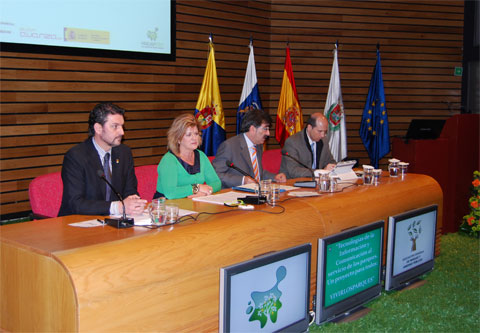
Philosophy in our cities is changing and it is leaving see public gardening and installation of new green areas such as adorno, to raise them as functional spaces?
It is undeniable that the evolution of green areas in Spain has had a steady growth, above all, linked to the momentum of our economy. We must be aware that investing in gardening, we invest in citizen welfare, by improving the aesthetics of our cities as also the quality of life of those living in them. They are spaces that play a role vital to their health, both physical and mental. The idea that we need to extract, is that it's spaces, as well as good environmentally, also meeting for the citizen, of socialization of the cities and they must respond to a concept of welfare to promote recreational and cultural values. In recent years it is trying to make spaces that are useful to the citizen, not only because they are beautiful, but so that they can also be used.
The Congress also addressed the issue of the accessibility of our parks and gardens. According to the data that handles AEPJP, approximately what percentage of our municipal parks is totally adapted? What challenges we are yet to play in this area?
Accessibility is one of the topics that most forgotten or that has later come to the priorities of many of our courts. A few years, all new projects include the accessibility of green areas and open spaces, but not in previous projects. Although we do not have statistical data, we know that it is gaining in accessibility in many ancient spaces that are reshaping and that the concept is also increasingly present in the consciousness of the designers, as long as most of our parks are fully accessible in the not too distant future.
For the 2013 Edition it has been chosen as the host city of the PARJAP Congress in Málaga. What has built the Assembly to make this decision?
Assembly presents several nominations for cities to carry out the Congress, and in this case, Málaga gave a fantastic presentation that can provide a quote such as ours. In addition, the capital of the Costa del Sol has come a long way in recent years in the creation of green spaces in the city centre, and thought the House that, coinciding with the 40th anniversary of the creation of AEPJPMálaga could be the ideal place to celebrate it.

